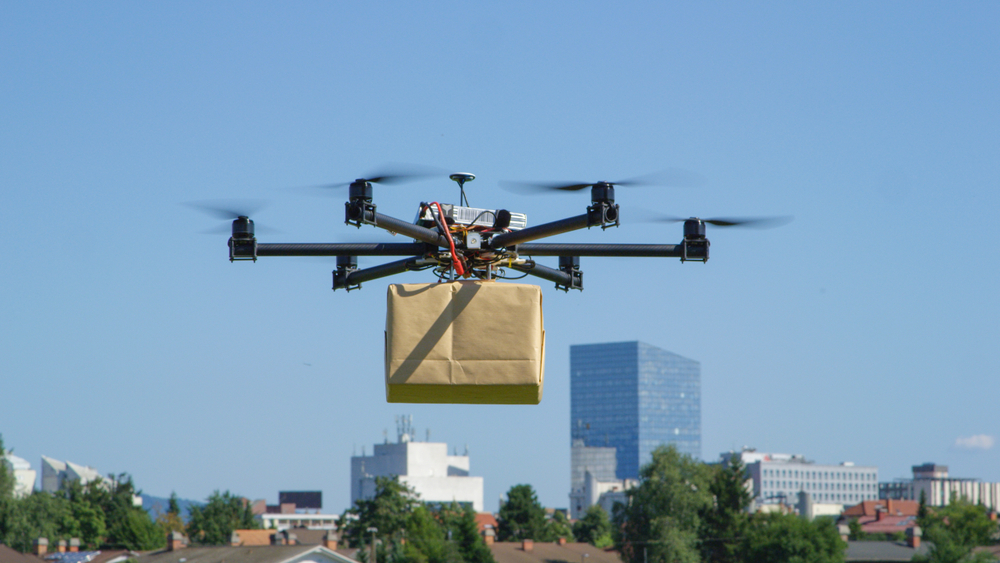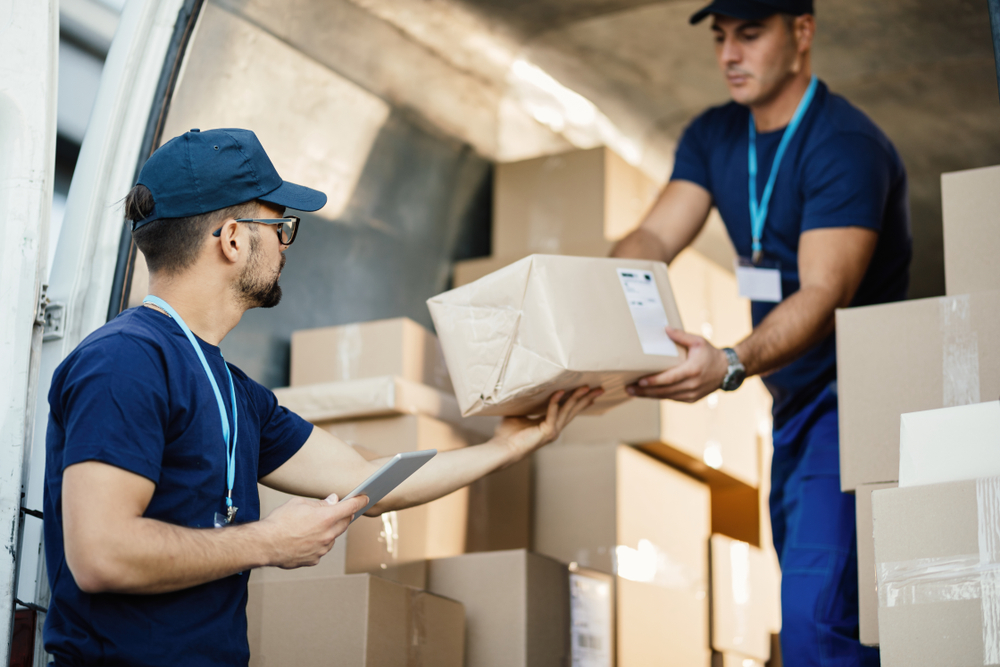One of the most exciting industries to be involved in is the courier industry. It is experiencing high annual growth and many new start-ups are entering the field. It is also exciting because the courier industry is undergoing a technological revolution that is rapidly transforming all aspects of delivery services.
6 types of new technology in the courier industry
1. Delivery drones
This technology has already begun to be utilised in some parts of Australia and has a lot of potential. Drones are operated by licensed drone operators and can deliver light packages without having to dodge traffic or follow roads. What can make drone delivery even more cost effective is that one pilot can manage many drones at the same time meaning that savings are made in employee wages. As this technology continues to improve and receive approvals to operate, expect it to be a game-changer.
2. Electric bikes and scooters
In every city of Australia there has been a boom in the use of e-bikes and e-scooters in the last several years. They have also been increasingly utilised by couriers for their speed, affordability and convenience. Australia has laws speed-restricting electric bikes however so they cannot legally be used with motorbike speeds. How they help is by enabling couriers to avoid traffic by using bike paths and alternate routes to get to the destination without exhausting the rider.
3. Self-driving vehicles
Although self-driving vehicles have only limited legal applications now, it is predicted that they will one day be allowed to operate on public roads. If this happens it will mean that courier companies can have a fleet of autonomous vehicles that can work day and night delivering goods at low cost. That will be truly revolutionary.
4. Better tracking of goods in transit
Technology that allows better tracking of goods in transit has already been widely implemented in the courier world. RFID tags, barcodes and QR codes are scanned at key times in the parcel’s journey and its present location can be automatically sent to those who need to know. This gives the customer the ability to see where their package is and the courier company is better able to prevent loss and theft.
5. Route optimisation
Route optimisation was done manually by the courier in the past, based largely on looking at a map and using their intuition. New route optimisation technology can perform this task with more exactness and instantly. This technology can allow a courier to scan a parcel’s label and have the location automatically added into their existing route, rerouting for the optimal route. This has the potential to save a lot of time spent route planning or driving.
6. Crowd-sourced delivery
This is partly a technology and partly a business model. Crowdsourced delivery is extremely popular for food but it is also revolutionizing all types of reliable courier services. It helps solve the difficult last-mile of logistics. A crowd-sourced courier service will allow any vetted user to undertake a single courier delivery for money. This means that many more people can participate in the courier industry at the ground level on a casual basis. It also allows customers the option of getting a low-cost delivery of just about anything to just about anywhere.
What this means for the courier industry
New technology in the courier industry will continue to transform delivery services in the future. These technologies have the overall effect of increasing the efficiency of courier businesses and providing added convenience for the customer. Couriers should take note of the following implications of these new technologies in their work:
1. Couriers will need to increase their efficiency
Many of these technologies increase the amount of work that a courier can do. This will result in competition based on efficiency in the market. Couriers will need to see how they can increase their work capacity or reduce their costs.
2. Couriers will need to improve customer experience
Another thing that new technology in the courier industry will do is drive couriers to improve the service that they offer to please their customers, whether sender or receiver. Increasing quality of customer service, speed of delivery and convenience will help keep a courier ahead of the curve. Customers more than ever want to know precisely where their goods are and when they will arrive. Technology can help the courier in this.
3. Couriers will need to reduce errors
To stay competitive in this evolving environment, couriers will need to be even more careful to prevent errors. Technology, like RFIDS and courier management software can help couriers to not make slip-ups and lose or misdirect goods. Couriers not making use of these technologies to reduce error might find it hard to meet rising customer expectations.
Insurance for couriers in a rapidly evolving industry
Insurance for couriers has always been important. Now with the introduction of a lot of new technology in the courier industry it is even more important to get it right. That’s because as a courier becomes more reliant on technology, the insurance risk that they are exposed to changes. Each technology represents an investment and introduces liabilities. E-scooters and drones for example, aren’t simply insured like a courier van would be. With increasing dependence on digital systems, a courier business is also increasingly vulnerable if there is system failure.
All this means that it is more important than ever to get courier insurance with expert insurance brokers like us at GSK Insurance Brokers. We have over 40 years of experience in the insurance business and will work with you to understand your unique risk profile, ensuring that you get the right insurance. No matter what shape or form of courier business you have we’d love to help you get the best cover, contact us today!




